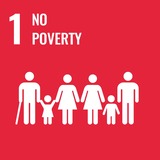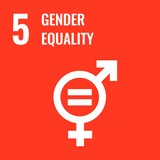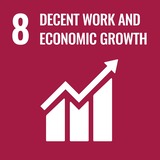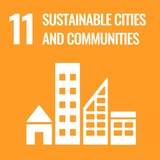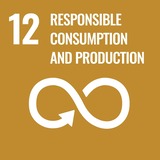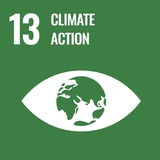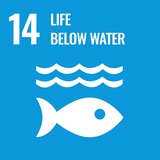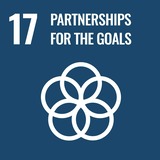Clean Bali protects our oceans from plastic waste
Kuta Utara, Indonesia
200 tonnes / year
Our story
Make, take, dispose?
We founded ecoBali back in 2006, and the idea came to us because of the lack of responsible waste management available in Bali. We were also concerned about the “make take dispose” linear behavior (which is sadly still happening today) and we thought, in our own way, that we could implement a more circular way to approach waste. And that was the impetus at the start of our journey to providing a waste collection and recycling service that is based on waste separation at the source for the non-organic material that includes plastic, paper, glass, and metal.

Making your own rules
Our goal from the beginning has always been to see waste as a resource, even plastic, where discarded materials are recovered to be recycled and only the residues are taken to landfills. We have established our own sorting center where post-consumer materials are further separated to maximize recovery and recycling reaching up to a 90% rate of recycling. And we have also started to work with communities via Waste banks and TPS3R to provide the opportunity for communities to be more active in recovering materials and be part of a more circular economy rather than the linear waste collection-disposal systems.

The future looks bright
During the years we have managed more than 5000 tonnes of nonorganic materials and we plan to expand to an increasing number of communities both urban and rural, including businesses. This is very important if we want to stop the waste from flowing into the ocean. We need to close the tap at the source. Our activities are focused in Bali and mostly in the regencies of Badung, Denpasar, Tabanan, and Gianyar at the moment. We are also now expanding in the other regencies with the goal to be active in the whole island of Bali soon.

New endavors with CleanHub
With the support of CleanHub we can increasingly reach areas that are far away, and effectively collect plastics that otherwise would most probably be dumped or burned in the environment. We now can start involving communities and businesses in managing their plastic waste more effectively.

The process
"We founded ecoBali back in 2006, and the idea came to us because of the lack of responsible waste management available in Bali. We were also concerned about the “make take dispose” linear behavior we thought that we could implement a more circular way to approach waste."
Clean Bali
Paola Cannucciari & Ketut Mertaadi • Senior Manager & DirectorMaximise impact
We aim to integrate all of our waste management and recycling programs (communities, schools, businesses, informal sector) so that we can further maximize our impact both by increasing the quantity of material collected, areas covered and recycling solutions to minimize at the maximum the residue.
Empower local communities
We strive to empower local communities through our waste bank program where the local communities themselves—especially the women—operate the waste bank in their respective villages. We also strive to reach local businesses so that they can also participate.
Reduce & recover
We intend to continue raising the awareness of responsible waste management and recycling to the public and reach an increasing number of communities so that we can maximize the recovery of recyclables and reduce the amount of waste that pollutes the environment.
Do no harm
We work to ensure that waste is not impacting the environment (zero waste to nature) therefore, especially with communities, we strive to provide a collection of a wide range of materials, and at the same time, we educate about the harm of practices such as dumping and burning.
Set high standards
We strive to implement the best waste management practice not only in collecting and managing the materials up to our recycling partners but also in ensuring fair employment.
FAQs
CleanHub empowers companies to take immediate responsibility for their plastic footprints. We connect ocean-loving brands with local communities, and facilitate the collection and safe processing of non-recyclable plastic. We understand the importance of proving impact, so we’ve built track & trace technology to provide evidence of how much plastic is collected, and where it ends up after we take care of it.
We choose recovery methods with the lowest environmental impact possible, and use our market position to enforce better working conditions for local workers.
80% of the plastic waste that ends up in the oceans is so-called flexible packaging or multilayer packaging, like chip packets, sauce sachets, etc. This material is either impossible to recycle or there is no demand from the market for the products (unlike water bottles which are commonly collected as they can be recycled, and so have ‘value’). Plastic that can’t be recycled is openly burned in small backyard fires or in landfills, or it is carried away into nature by the monsoon or strong winds. While we do collect all plastics, we focus on non-recyclable plastic to maximize our impact.
In order to stop ocean bound plastic, we need to significantly increase plastic recovery rates in high leakage locations. To achieve that, we empower communities around the world to cope with their own plastic waste, create incentives, develop waste management standards and foster local entrepreneurship. In our network of recovery endpoints we provide critical off-take agreements to safely treat plastic waste.
Plastic pollution is a global problem that affects us all. CleanHub is building a global network of local Collection Hubs in high impact locations to facilitate the collection and safe processing of non-recyclable plastic. We operate primarily in South (East) Asia which is the gateway for more than 80% of all plastic that enters our oceans. With your contribution we can reduce the mismanagement of plastic waste in these regions to eventually stop this environmental crisis.
Recyclable goods are sold for local recycling. Non-recyclables are sent for co-processing.
Co-processing refers to the simultaneous recycling of mineral materials and recovery of energy in the process of cement manufacturing and achieves a superior environmental performance as compared to landfill and incineration. For co-processing recovery we partner with Geocycle.
To learn more, read our blog - What happens to the collected waste
Plastic neutrality means that for every amount of plastic created, an equal amount of plastic waste is retrieved from the environment to be appropriately disposed of - either recycled or repurposed.
We work with brands to calculate their plastic footprint and recover the equivalent amount from the environment in high leakage countries, such as Indonesia or India. Some brands want to go further and recover more plastic than they emit, earning them Plastic Neutral + status. . Every contribution directly prevents plastic from entering our oceans and supports the development of local waste management infrastructure.
To stop plastic from entering the environment, we need to get to a point where the material is collected as close to the consumer as possible, and intercepted before it can reach the ocean. The majority of our plastic efforts are door-to-door collection or other smart ways to aggregate waste in one point. We also finance projects with passive technologies that catch plastic in rivers. The smallest fraction of plastic stems from beach cleanups or is directly sourced from the ocean.
Recovering plastic from the environment involves three distinct operations. Firstly the collection of the plastic, secondly the sorting of plastic into its unique types and thirdly the safe and final treatment. We digitize the recovery of ocean bound plastic from start to finish.Our Hubs use our technology to track the full collection process, which means we can verify every piece of plastic that is collected and what happens to it after we take care of it.
Watch this video to see how it works
We choose the best recovery method according to three steps. Firstly, available recovery options are ranked according to the waste management hierarchy, i.e. Recycling > Energy Recovery > Landfill. Secondly, we rank all options on the basis of life-cycle assessment results that determine related Co2 emissions. Thirdly, all recovery options are ranked by their level of technology and safety. CleanHub only works with recovery companies that operate according to the European code of conduct.
Sign up to our newsletter
Subscribe to receive monthly insights. Plus, we’ll collect 1kg of plastic on your behalf.
Our accreditation
We're the first plastic credit system verified by TÜV SÜD


